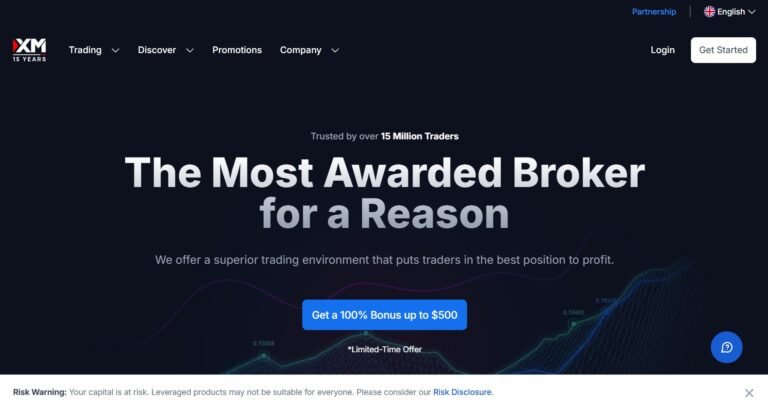Table of Contents
Introduction to XM Broker
This XM broker review examines claims of an XM broker scam to assess whether this broker is trustworthy. XM offers forex and CFD trading—covering currencies, commodities, indices, stocks, and more—and is headquartered in Cyprus. We ask: is XM a scam or a legitimate trading platform? This XM broker review unveils all the essential insights.
We have two main audiences in mind: those who suspect they’ve been scammed and want verified information, and new traders who are cautious about XM before investing. We understand the frustration and need for clarity, and this article aims to offer both reassurance and solid guidance.
XM Broker: Regulation & Legal Status
XM is regulated by several respected authorities, including CySEC (Cyprus), ASIC (Australia), DFSA (Dubai), IFSC (Belize), and FSCA (South Africa) :contentReference[oaicite:0]{index=0}. This multi-layered regulation provides oversight, client fund protection, and dispute resolution options—a strong countermeasure against scams.
Caution: Some traders confuse XM with similar-sounding offshore entities. Always verify the exact legal entity and licensing. For guidance, learn how to spot a scam broker before it’s too late. Given XM’s regulation, claims that XM is a scam lack substance here.
Trading Conditions & Platform Analysis of XM Broker
XM offers multiple account types (Micro, Standard, Zero, Ultra Low, Shares, Islamic), with minimum deposits starting from $5 :contentReference[oaicite:1]{index=1}. Leverage varies by region—EU capped at 1:30, others up to 1:1000 :contentReference[oaicite:2]{index=2}.
Trading platforms include MT4, MT5, and the XM WebTrader. While MT5 familiarizes traders with advanced charts and automation, independence from platform alone doesn’t ensure trust. XM discloses its liquidity sources and execution policies, which supports transparency. Yet, be sure to understand terms before trading; see what to check before signing up with a trading platform. Gaps here might raise doubts that XM might be a fraud—but transparency helps reduce those concerns.
Reputation & User Reviews About XM Broker
On platforms like Trustpilot and BrokerChooser, XM scores well—highlighted for its negative balance protection, educational content, and multilingual customer support :contentReference[oaicite:3]{index=3}. However, about one-third of users report slow withdrawals or interface issues :contentReference[oaicite:4]{index=4}.
XM serves over 15 million clients across 190+ countries, with over 2.4 billion trades executed without re-quotes or rejections :contentReference[oaicite:5]{index=5}. Reviewers should still watch for fake testimonials, but overall feedback supports XM’s credibility.
How to Test Whether XM Broker Is a Scam
First, verify licensing with regulators such as CySEC, ASIC, or DFSA directly—legitimate brokers list these clearly. Missing or vague regulation is a major red flag. Consult independent reviews on Trustpilot or Forex Peace Army to track patterns.
Test the demo account to assess execution. Beware vague withdrawal methods or crypto-only payment requests. Be skeptical of “guaranteed profit” claims—these are always suspicious. Always ensure clear user support and deposit/withdrawal transparency.
Final Verdict & Alternatives
XM Broker is well-regulated, transparent, and respected by users globally. It is not a scam. Still, practice due diligence—check your regional entity and understand fees or terms before trading.
If you want equally credible alternatives, consider IG, Pepperstone, or IC Markets—each regulated and vocal about client protection.
Remember: stick with licensed brokers and always trade with caution to protect your funds and confidence.
For further verification and reporting resources, see the FTC fraud reporting page, cross-reference licensing on the SEC website, or use the XM broker safety checker.


